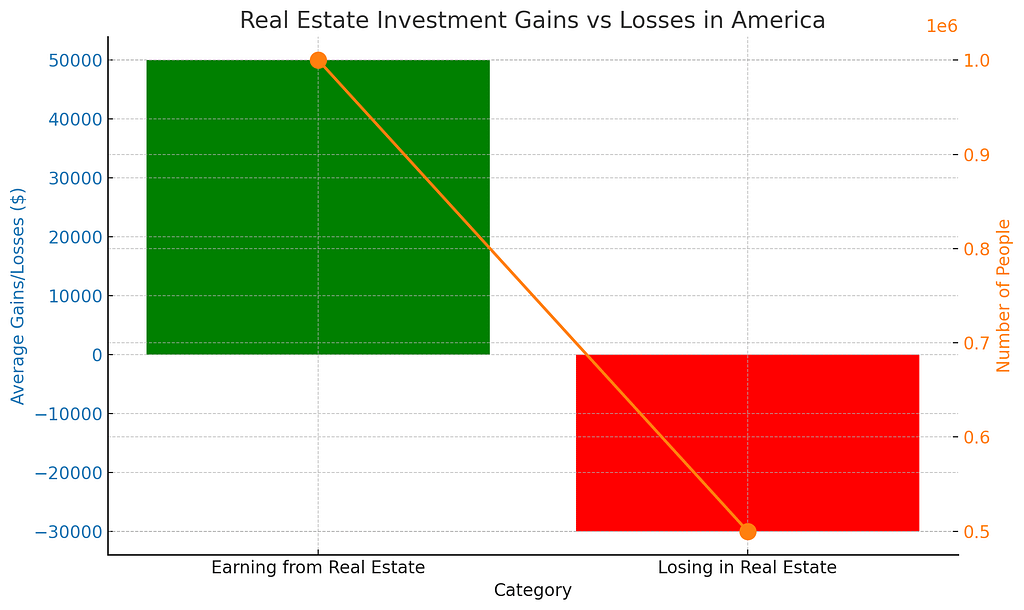
In the ever-evolving world of investments, real estate has long been considered a powerful asset class, offering a unique blend of potential returns, diversification, and tangibility. Whether you’re a seasoned investor or just starting your journey, understanding the intricacies of real estate investing is crucial to unlocking its full potential. This comprehensive guide will delve into the nuances of this dynamic market, exploring its advantages, risks, and strategies for success.
Why Invest in Real Estate?
Real estate investments offer a range of compelling benefits that set them apart from traditional asset classes like stocks and bonds. Here are some key advantages:
- Tangible Asset: Unlike many financial instruments, real estate is a physical asset that you can touch and see, providing a sense of security and control.
- Potential for Appreciation: Well-chosen real estate properties can appreciate in value over time, offering the opportunity for capital gains.
- Cash Flow Generation: Rental income from investment properties can provide a steady stream of passive income, supplementing your overall portfolio returns.
- Portfolio Diversification: Real estate investments often have low correlations with other asset classes, contributing to risk mitigation through diversification.
- Leverage Opportunities: Real estate investments can be financed through leverage, allowing investors to control larger assets with a smaller initial investment.
Types of Real Estate Investments
The real estate investment landscape offers a diverse range of options, each with its unique characteristics and potential returns. Here are some common investment types:
- Residential Properties: Single-family homes, condominiums, and multi-family units can generate rental income and appreciation.
- Commercial Properties: Office buildings, retail spaces, and industrial properties can provide steady cash flows and potential value appreciation.
- Real Estate Investment Trusts (REITs): These are companies that own and operate income-producing real estate properties, offering investors the opportunity to invest in real estate without direct ownership.
- Real Estate Crowdfunding: Online platforms that allow investors to pool resources and invest in real estate projects or properties.
- Fix-and-Flip: Purchasing undervalued properties, renovating them, and reselling for a profit.
Evaluating Real Estate Investments
When considering real estate investments, it’s essential to conduct thorough due diligence and analysis. Here are some key factors to consider:
- Location: The adage “location, location, location” holds true in real estate. Assess the desirability, growth potential, and economic indicators of the area.
- Property Condition: Evaluate the physical state of the property and potential repair or renovation costs.
- Cash Flow Analysis: Carefully analyze rental income potential, expenses, and cash flow projections to ensure profitability.
- Market Trends: Stay informed about local and national real estate market trends, including supply, demand, and pricing dynamics.
- Legal and Tax Considerations: Familiarize yourself with relevant laws, regulations, and tax implications associated with real estate investments.

Strategies for Real Estate Investing
Buy-and-Hold
This strategy involves purchasing a property and holding it for an extended period, generating income through rental payments and potential appreciation. It’s a long-term approach suitable for investors seeking passive income and capital growth.
House Flipping
Also known as fix-and-flip, this strategy involves purchasing undervalued properties, renovating them, and reselling for a profit. It requires significant expertise in identifying suitable properties, managing renovations, and timing the market effectively.
Real Estate Investment Trusts (REITs)
REITs offer a more passive approach to real estate investing, allowing individuals to invest in a diversified portfolio of income-producing properties without direct ownership responsibilities.
Real Estate Crowdfunding
Online crowdfunding platforms provide access to real estate investment opportunities that may have been previously inaccessible to individual investors. These platforms pool funds from multiple investors to finance real estate projects or property acquisitions.
Risk Management in Real Estate Investing
While real estate investments can be lucrative, they also carry inherent risks that should be carefully managed. Here are some key considerations:
| Risk Factor | Description | Mitigation Strategies |
| Market Risk | Changes in market conditions can impact property values and rental rates. | Diversify across different markets and property types. |
| Liquidity Risk | Real estate investments are relatively illiquid compared to stocks or bonds. | Maintain adequate cash reserves and plan for long-term holdings. |
| Tenant Risk | Vacancies or non-paying tenants can disrupt cash flow. | Thorough tenant screening and effective property management. |
| Leverage Risk | Financing real estate investments with debt can amplify potential losses. | Maintain a reasonable debt-to-equity ratio and adequate cash reserves. |
Conclusion
Real estate investing offers a unique opportunity to build wealth through tangible assets, cash flow generation, and potential appreciation. However, it’s crucial to approach this market with a well-informed strategy, thorough due diligence, and effective risk management practices. By understanding the intricacies of real estate investments and aligning your approach with your goals and risk tolerance, you can unlock the potential of this dynamic asset class and potentially achieve long-term financial success.
Remember, real estate investing is not a one-size-fits-all endeavor, and seeking guidance from experienced professionals can be invaluable in navigating this complex landscape.
Investing in real estate offers various opportunities for individuals looking to diversify their investment portfolio. Here are some key ways to invest in real estate:
- Rental Properties: Owning rental properties can provide regular income, property appreciation, and leverage through financing. However, managing tenants and potential vacancies are considerations1.
- Real Estate Investment Trusts (REITs): REITs are like dividend-paying stocks that allow investors to access real estate without owning physical property directly. They offer a more hands-off approach to real estate investing4.
- Online Real Estate Platforms: Platforms connect investors to real estate projects, offering opportunities for investment without the need for direct property ownership. This can be a more liquid and less time-intensive way to invest in real estate25.
- House Hacking: Renting out part of your home can be a low-cost way to start investing in real estate. It involves renting out a room or living space within your own home to generate additional income35.
- Real Estate Investment Groups (REIGs): REIGs involve pooling money with other investors to buy income-generating properties collectively. This method allows for shared ownership and expertise, reducing individual responsibilities in property management3.
Investing in real estate can offer benefits like cash flow, tax advantages, portfolio diversification, and the potential for long-term appreciation. Each investment option has its pros and cons, so it’s essential to consider factors like capital requirements, time commitment, and risk tolerance when choosing the right strategy for your financial goals.